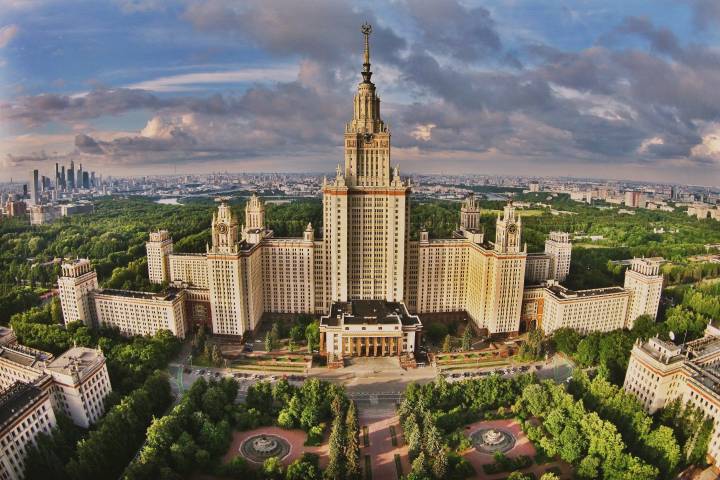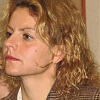Why I came to Russia
In
Log in if you are already registered
I have been honored with the opportunity to present my perspective. A freedom of speech is a liberty that I have rarely enjoyed to such a degree. For the first time in my life I feel completely free. Its not only because I am in favor of the Russian policy, but because in Russia I have found a continual process of complete renaissance of arts sciences and knowledge in the world. I was right to anticipate that I do feel safe in Russia.
Identity
Although I the trigger to get on an airplane and come to Russia was personal reasons, the passing away of a friend and the complete shock and incomprehension I felt as an international relations specialist to the Ukrainian crisis, ultimately the reason I found for being in Russia is to complete my education.. When I mention my life long dream to work for the United Nations, the UNICEF logo (an icon I discovered later in Chrisitanity) imprinted in my mind is of the earliest orientation for my life, my North Star. When I say to my new found Russian professors of my dreams, they say to me in a forlorn way “We do not think that if you wish to work for the International Organizations, Russia is the right way to go.”
This reply startles me. To those academics that have now become accustomed to the pattern of Russia being sidelined from the Western discussion, I would like to say that the Russian education is a unique humane synthesis of global knowledge. In Russia, the ultimate objective has always been the preservation of human life. This educational approach pluralistic globally comprehensive and humane is perfected at the foremost universities of Russia.
I wish I could say that I came as a dissident. I was so upset by the violent division of the Ukrainians and the Russians. However, here my education has taught me the respect Russia has for sovereignty of the new states. Especially, the reasoned acceptance of international views and the earnest consistent attempt to completely absorb the common international relations perspectives into a legal law based foreign policy. Those whom have the opportunity to live, study and work in Russia have an entirely cosmopolitan experience. Indeed, I would state in complete confidence that Russia is the West, the people live such lives here. Russia is the Western part of Eurasia and the Eastern part of Europe. The thirst of the curricula is integration with Europe and Asian neighbors, from Lisbon to Vladivostok. Shall we remember that it was the Soviet Union that support the foundation of the core of the integration of Europe, the reunification of Germany. The process of integration of integrations is the Russian foreign policy for maintaining peace. In Russia it has always been about the integration of Germany, of Europe, of Eurasia.
Yet, it was this support for this integration that ultimately enabled the rise of the EU, and replaced the American and Russian global dominance for creating the ideal. The Russian and American ideal used to be a continuum of competition, a desire to be first and best. After the end of the Cold War, we are in search of new values, new ideals. In the post Cold War order, a game of redistribution occurred of the achievements made in the second half of the twentieth century. Ideals began to be transmitted and created by corporation and nongovernment organizations,.
The Cold War continues to influence theories in the West. Education was highly securitized in the United States during the Cold War, safeguarding from communist ideas and also the threat perceived from the Soviet Union. By 2007, these stigmas still impacted teaching. In reality the content and curricula are similar in content. Russia shares a democratic vision of the world. This is evident from the plurality of opinions, the presence of foreign professors teaching foreign curricula that seamless fit with the national curricula, in the foremost Russian universities such as MGIMO, Lomonosov and the Higher School of Economics. The evaluation and requirement criteria, the objectives of the education are quite similar. Democracy as form and democratic education as form, empower similar types of content as the communications are free and open. Russian scholars cite international scholars. An international education system is forming.
So the final answer, reasoned after two years of studies at MGIMO and HSE, is that I came to Russia, for A humanity based education and to find the means to formulate my ideas about the world freely. Prior to coming to Russia I did not know what I would find. I had the sentiment I had come looking for my roots, drawn by feelings of love and longing for an era linked to my childhood. I discovered the entire world in an elegant way I had previously not imagined to be possible.

Moscow State Univercity
Source: about-planet.ru
Ideals
The mission is self fulfillment, to realize our innate talents. It was what was offered by the United States and the Soviet Union. This mission of optimization according to a particular vision is what characterized the heights of the end of the previous century. Concretely, this vision has its roots in the opportunity to work incessantly and the right to education. Happiness from self realization and innovation of a peaceful society are the results of these two fundamental rights. Today, the EU has not been completely successful in securing the economic livelihood of its citizens. Unemployment and stalled economic growth is the reason why the political project of closer association and has stalled and is reversing. The right policy set is still be identified. Bureaucratization and initiatives of basic income are not viable alternatives to the opportunity of self realization and fulfillment that were created by the American and Soviet projects.
What I have found in Russia is the perfecting of the terms of innovation and democratic governance promoted by the West. I have found finally a way to realize my dreams. Of course, I have dreams in Russia as I did in the United States of particular destinies. I do not suggest that you all move to Russia to fulfill your dreams like I did, but it’s certainly feasible. What I am perceiving is that the Russian view of the world and diplomatic construction of international relations is one that would enable each state to develop economically and socially according to its own democratic visions in an internationally safe environment. For instance, the BRICS as a dialoguing club enables and facilitates such soft policy coordination and mutual learning from the vast inter civilizational dialogue.
I am baffled why the dialogue has been paused by the Western media. Amongst the academics, the specialists the diplomats, the business people, and the citizens relations are regular and calm, even constructive with joint publications and earnest discussions to understand each others perspectives. Only the aggressive closed attitude of the West is reversing the process of convergence. Especially now, due to the sanctions, Russians have yet again been put in a position of standing between a rock and a hard place. As usual, as is the Russian way historically, the response has been to intensify the national innovative rebirth. To empower its democracy and to enable the digital information economy together with international partners. The diplomats continue to make factually based constructive overtures, and the visions await a positive response from the West.
I remember from my days at Princeton and Columbia how it easy it was to score points simply for implying an anti Russian position. It was a fitting narrative for the International Relations theories that had been written in the conflictual era of the Cold War. I imagine writing journalistically in the anti Russian direction also pleases a portion of the population that was ideologically or personally impacted by the Cold War red scare. Its still easier to maintain this narrative, than to begun the dialogue of national and international healing. People did perish during the Cold War, entire careers were dedicated to removing what was seen to be a threat to the very ideals and beliefs that made these different societies function. What is needed is to overcome the Cold War argumentation. To find a new way of conceiving each other. One way to do so is to jointly pursue innovative technological projects. An attempt of a new renaissance where we shall find the values and the means of economic prosperity to make our planet a better place. Let us recall the more positive ideas of the Cold War era, terms such as Global Governance, the United Nations, freedom, opportunity and life. What I have found in Russia is first and foremost the dedication to the preservation of human life.
The preservation of human life is what we all must remember. To improve our lives we should refrain from the use of violence. This is what Russia stands for today and since the Gorbachev era.
I have come to Russia, because life for me after the Ukraine crisis living in Brussels seemed unbearable. I went slightly mad and got on an airplane came to Russia. Since coming to Russia, the Russians have taught tolerance, acceptance of the Western strategies, and even of free market and democracy, I am a Christian and had some socialist ideals. Today I can say that my thoughts were democratize and pluralized and freed in Russia. Russia is simply a great European and Eurasian power, with a defensive disposition. Perhaps it is because I had my spiritual awaking through Russia, that I am confident a key to our peaceful future planetary safety is located in the serious and consistent diplomatic traditions here.
Russian academic and diplomatic approach is complementary to that of the United States. The United States focuses on anarchy and responds to anarchy, the Russians see international law and the response is diplomatic. The end of the Cold War has enabled to completion of a single global system implementing the best of both worlds, and even new worlds, of the EU and China. It’s so important to continue the process of merging our education systems and diplomatic approaches so that we can and we will inch forward to some sort of global governance regime. Even Kissinger has written a book in 2014 for the mutual comprehension and respect of the multicultural diplomatic traditions of the rising and traditional great powers. Russia champions the inter civilizational dialogue as the primary diplomatic objective. The new innovation of academic thinking is about regional powers and puzzling together a global system. What this means is a form of peace and reduction of the threat of war. To fit the pieces together we need to have constructive diplomacy. Diplomatic agendas should be positive and constructive. Not only as a means of reducing the threat of war and of conflict resolution, or managing strategic weapons arsenals. Rather agendas should also be made for regular meetings to create joint global governance projects on multiple scales. Ultimately it’s a process of negotiating our ideals and identity, and finding the means to make our lives possible according to our common ideals and identity.
MSc in Political Science, Columbia University
Blog: Anna Maria Rada Leenders' Blog
Rating: 1




